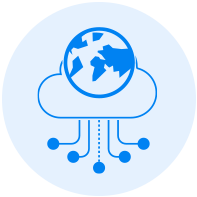
Solving the Lending Challenges of Today with Utility Payment History
Ma-Keba Frye | September 17, 2020 | Credit & Lending
At the onset of the COVID-19 pandemic, many banks and lenders lacked the technological resources to accommodate the sudden shift to a remote workforce and limited face-to-face customer interactions. As financial institutions work to digitize their processes, working with software providers that offer alternative data sources like utility payment history can play a major role in helping lenders face these challenges.
LEARN HOW ALTERNATIVE DATA CAN HELP FINANCIAL INSTITUTIONS IMPROVE OPERATIONAL EFFICIENCY
Accommodating volume surges
The creation of the Paycheck Protection Program (PPP) and a record drop in mortgage interest rates led to a spike in loan applications that banks and lenders were unprepared for. Mortgage loan applications saw a 34 percent increase from last year, while 70 percent of small business owners applied for an emergency loan through the PPP. For traditional banks, limited technology solutions and overwhelmed staff struggled with underwriting and manually processing PPP applications.
With streamlined processes, machine learning, and automated access to alternative data sources, Kabbage approved almost 300,000 PPP loans.
Thus, the pandemic and increased application volume exposed the limits of traditional data. While many banks struggled to process the significant number of applications coming through, online lender Kabbage was able to weather the storm. Thanks to streamlined processes, machine learning, and automated access to alternative data sources like utility payment history, Kabbage approved close to 300,000 loans – making it the second-largest issuer of PPP loans in the country.
Improving onboarding efficiency
With more customer interactions taking place online, traditional processes like manual document collection for identity verification fall short. Consumers have long been demanding a better online experience and identity verification processes that minimize friction, but with the new and fully digital circumstances, time has run out for banks to innovate.
Some lenders have turned to alternative data, including utility payment history, to streamline onboarding and reduce PPP and mortgage loan fraud risk. Digital access to this data is key in order to streamline the onboarding experience. For instance, digital access to utility bills for identity and address verification enables financial institutions to satisfy KYC compliance while also enhancing the customer experience with safe, self-service onboarding.
Enhancing business continuity
In this time of uncertainty, technology is proving to be the key to business continuity. Financial institutions have been forced to quickly reevaluate their technology to maintain business as usual during an unusual time. Since the onset of the pandemic, banks and credit unions have had to make rapid changes to keep their operations up and running while face-to-face customer interactions are limited and employees are remote.
Banks and credit unions have to leverage technology over people to keep their operations up and running.
Financial institutions have worked to ensure that their transition to digital banking doesn’t alienate current customers. Some institutions have even implemented video-based demonstrations for online bill payments and remote check deposits, chatbot-based support, and customer service calls to extend assistance to customers and ensure they have a seamless experience. Providing the necessary support for processes that can be executed anytime, from anywhere, and on any device drives up operational efficiency and meets the modern expectations of customers.
Utility payment history improves operational efficiency for banks and lenders
Utility payment history can help lenders rapidly solve these new challenges by enabling them to eliminate manual document collection and quickly and seamlessly verify identity and address. Urjanet provides banks and lenders with automated access to consumer-permissioned utility data, so lenders can process high volumes of loans, improve customer onboarding, and keep their operations up and running. Urjanet partners with identity verification and loan origination software providers and works directly with some banks and lenders.
To learn more about incorporating utility payment history into your identity and address verification process, contact us today.
YOU MIGHT ALSO BE INTERESTED IN:
- Case Study: Online Lender Streamlines PPP Loan Forgiveness with Urjanet
- Consumers Embrace Sharing Account Payment History for Credit Decisioning
- How Incorporating Non-Traditional Data Into Credit Risk Decisioning Can Drive Growth
If you like what you’re reading, why not subscribe?
About Ma-Keba Frye
Ma-Keba Frye is a Content Marketing Associate at Urjanet, assisting with content development and execution. When she's not writing, she enjoys reading, listening to music, and volunteering.
